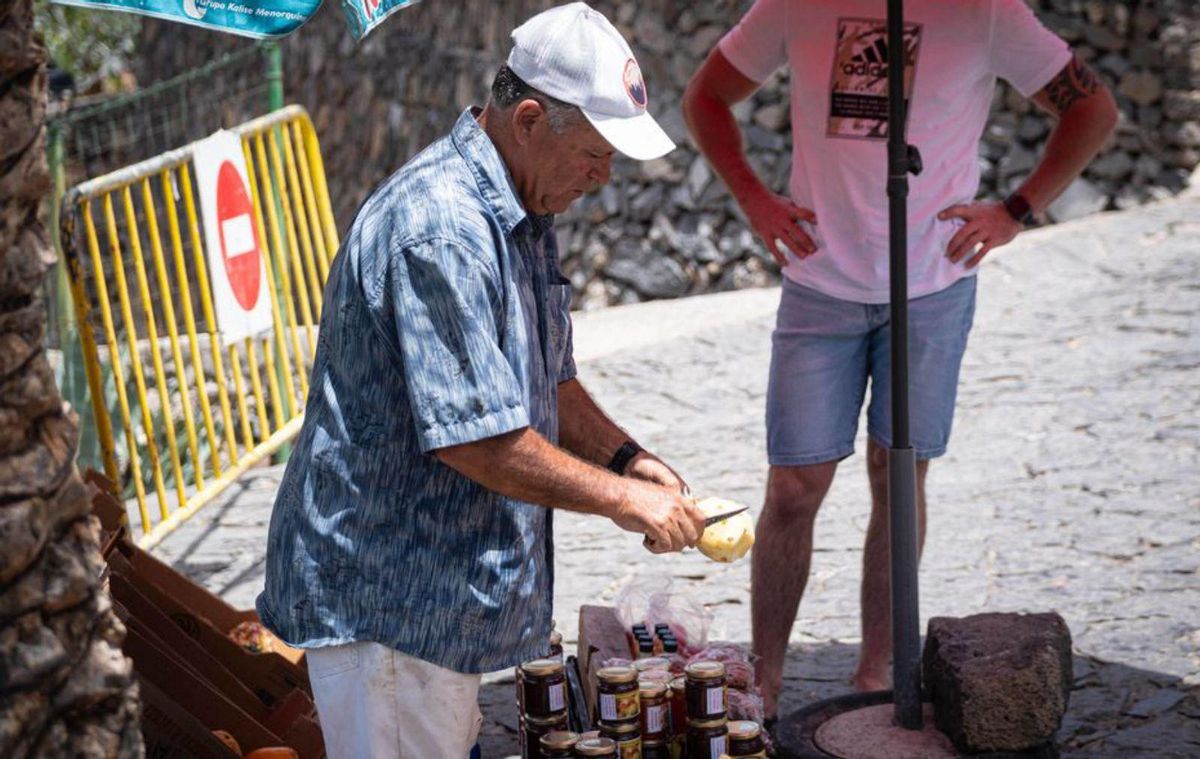The Residents of the Caserío de Masca advocate for an Increase in public transport to the hamlet as the sole means of accessing the ravine, rather than the alternatives suggested by the Cabildo de Tenerife in its comprehensive plan. This was announced last Wednesday, with services set to commence on the 18th, Good Friday. A meeting between the Barranco de Masca neighbourhood association and representatives from the Insular Corporation has now been scheduled. It will take place on Wednesday at the old school, between 4:30 p.m. and 6:00 p.m. Javier Díaz, president of the association, anticipates more emphasis on the required discretionary transport system for entering the protected natural area than on discussions surrounding his proposals. Until then, they are advocating for the enhancement of Titsa and taxi services.
Díaz believes that, after reviewing the announcement, “once again, prioritising decisions rests predominantly on Tourism management, while the necessities of locals are pushed into the background.” He notes that, while the statement addresses the comfort of residents and environmental conservation, “the measures proposed are solely focused on regulating visitors, ticket sales, and optimizing tourist access.” He contends that “key issues such as livability, accessibility to our homes, water management, and maintenance of the agricultural landscape have not been considered.”
Additionally, Díaz remarks that “the challenge of generational transition within the Caserío is exacerbated by the restrictions tied to cultural heritage and the Governing Plan for Use and Management (PRUG) of the Teno Rural Park.” He acknowledges that “specific actions to enhance the daily lives of residents are not outlined, beyond increasing police oversight in parking areas and viewpoints.” Consequently, the association urges that “decisions regarding Masca prioritise the needs of its inhabitants. Masca, Teno, Anaga, and the other hamlets on the island should not be viewed merely as tourist sites to regulate, but as living communities that necessitate policies, actions, and investments.”

A resident of Masca offers fresh fruit to visitors. / AJ
The intention to “reassess priorities” and “ensure harmony between locals and tourism” is at the forefront of the proposed fifteen measures, particularly concerning mobility. Among these is the “expansion of public transport services provided by Titsa,” which would include “increased frequency of guaguas between Masca, Santiago del Teide, and Buenavista del Norte as well as integration into the island’s network.” In a similar vein, “encouraging the use of taxi services,” and in direct relation, “the prohibition of private launches, ensuring that access to Masca remains public and sustainably managed.”
Another demand calls for “constant educational campaigns directed towards tour operators and car rental companies to promote public transport usage and reduce congestion from private vehicles in Masca.” Ultimately, “tourists should rely on public transport instead of personal vehicles. This would generate additional revenue for the company to maintain lines that are otherwise unprofitable in other areas.”
Other issues to be addressed include the establishment of new parking facilities “to Prevent parking chaos,” enhancing signage and police presence, investing in security improvements, and enhancement of the TF-436 with drainage and slope stabilisation, road widening, or the construction of apartments; regulating the volume of tourist vehicles to prevent traffic blockages; ensuring that the road remains open for pedestrians, controlling vehicle flow with new technologies, promoting sustainable transport via the restoration of traditional paths, managing access to internal routes, coordinating with affected residents and sectors, and decentralising tourism to nearby areas to distribute visitor traffic more evenly.
Javier Díaz concludes: “Our aim is not to limit access to Masca, but rather to establish a balance between the quality of life for residents and tourism.” He stresses that “with the active participation of citizens and public authorities, we can achieve a sustainable and equitable model.” He finishes with a rallying cry: “Masca is not for sale; Masca stands its ground!”















